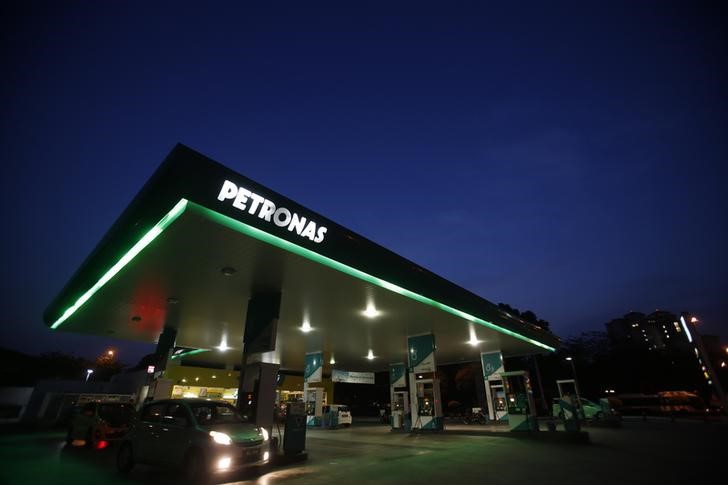* Lawsuits to be filed on Thurs in federal court
* The cases will also name Malaysia's Petronas
* Environment group says serious flaws in assessment process
* Canada gave OK for the Pacific NorthWest LNG project in Sept (Adds details, background)
By A. Ananthalakshmi
KUALA LUMPUR, Oct 26 (Reuters) - Aboriginal and environmental groups will file lawsuits on Thursday against the government of Canada to overturn the permit for a controversial $27 billion liquefied natural gas (LNG) project in British Columbia.
The lawsuits will name Malaysian state oil firm Petroliam Nasional Berhad (Petronas) PETR.UL , which owns a majority stake in the project, as an associated party, representatives of the aboriginal and environmental groups told Reuters this week.
Canada in September gave the green light for the Pacific NorthWest LNG project in northern British Columbia with 190 conditions, despite concerns it would destroy a critical salmon habitat and produce a large amount of greenhouse gases.
The decision was a major test for Canada's Liberal Party, juggling the needs of an energy industry suffering from job losses and the concerns of environmentalists, who were courted by Prime Minister Justin Trudeau in last year's election campaign.
The groups will file the lawsuits at the Federal Court in Vancouver. The legal challenge puts the future of the project at risk after it has already been hit with a three-year delay in getting its environmental permit and as Asian LNG prices have dropped by about two-thirds since 2014.
The Canadian government was not available for immediate comment outside regular business hours. Petronas did not immediately respond to a request for comment.
"We believe there are serious flaws in the environment assessment process," said Greg Knox, executive director of SkeenaWild, an environmental group filing one of the lawsuits.
Besides the defects in the environmental review, SkeenaWild also alleges that Canada failed to review the project's climate impact.
Knox said the project would be one of the largest sources of climate pollution in Canada, even if it met the conditions imposed by the government.
The Gitanyow and Gitwilgoots aboriginal communities have similar concerns and said they will sue Canada for failing to meaningfully engage with the groups before granting the approval.
"They totally ignored whatever we put forward to them," on salmon destruction and climate change, Glen Williams, chief of the Gitanyow told Reuters.
The Petronas-led project plans to liquefy natural gas at a facility in the district of Port Edward, British Columbia, about 1,600 km (1,000 miles) northwest of Vancouver. It would then export about 12 million tonnes a year of LNG to consumers in Asia.
Firms in China, India, Japan and Brunei are minority stakeholders in the project.
ENBRIDGE PRECEDENT
Both the groups say they are confident of a decision in their favour, especially after the approval for Enbridge Inc's ENB.TO Northern Gateway oil pipeline was overturned in June. The Federal Court of Appeal said the government failed in its duty to consult with aboriginal groups.
Canada's former Conservative government in 2014 approved Northern Gateway. But after the approval lawsuits were filed seeking to overturn the decision.
Aboriginal group leader Williams said they are relying on the Enbridge case for a positive ruling.
"(The lawsuits) put the project at extreme risk," he said.
Petronas is weighing its options given soft LNG prices and a weakening economic basis for the project, Reuters reported last month. Sources said it is considering selling its majority stake, though Petronas denied it was mulling such an action. Newman, Canada Research Chair of Indigenous Rights at the University of Saskatchewan, said while the case is before the court, Petronas would need to consider whether it wants to proceed with the project if there is a decision against them.
"The indigenous claims are tending to see more success (than the environmental claims) but in part that's because the law is less defined and because indigenous communities have constitutional rights," he said.
